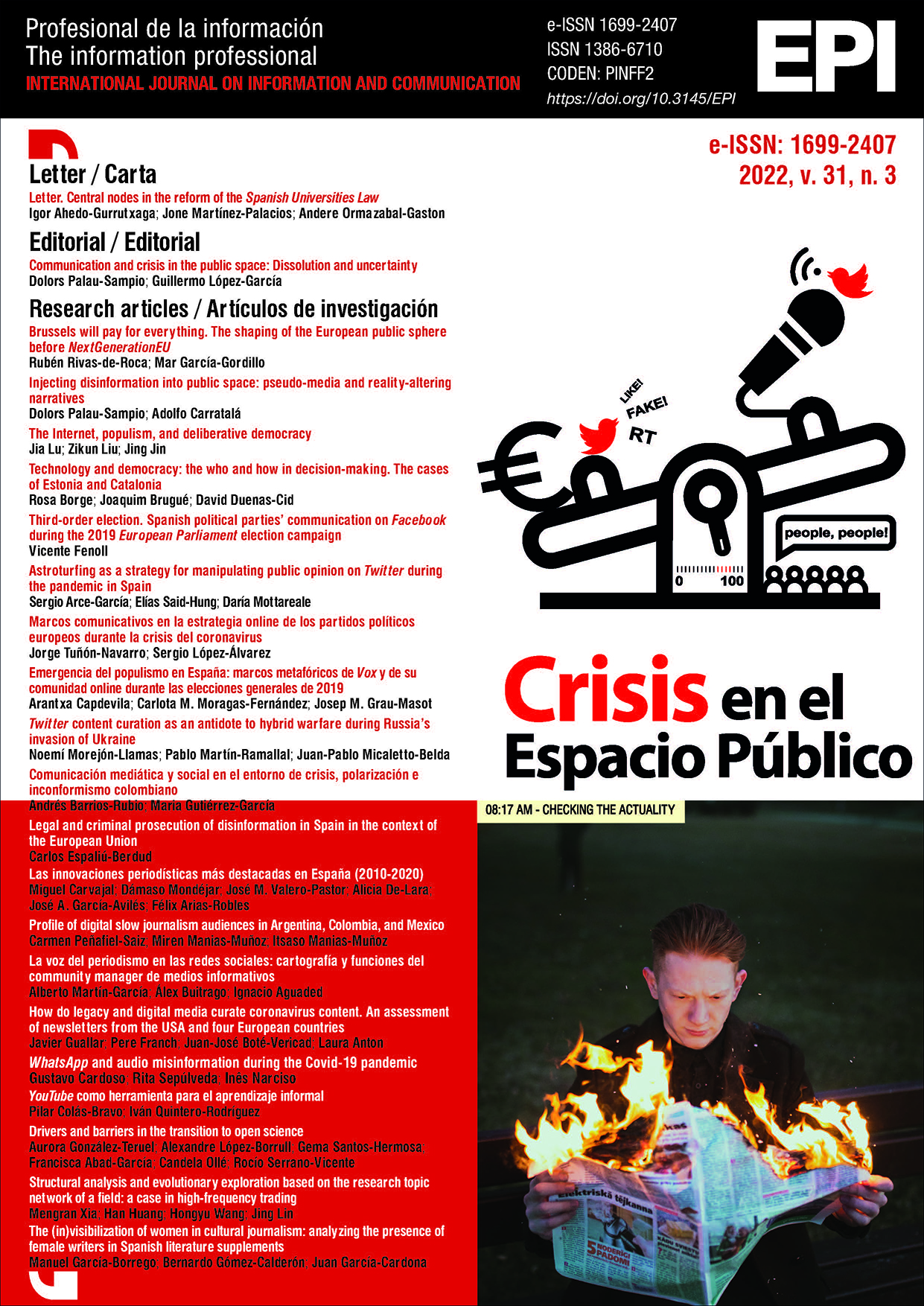
Título del artículo
Injecting disinformation into public space: pseudo-media and reality-altering narratives
Autores/as
Dolors Palau Sampio
Adolfo Carratalá Simón
Resumen
This paper analyses the context of disinformation in Spain from the perspective of the pseudo-media (i.e., websites that mimic conventional media to offer partisan content based on alternative facts). Using a quantitative (N = 1,143) and qualitative (n = 396) methodology, this research analyses publications from eight Spanish pseudo-media that reach more than 4 million unique users. Results reveal an interest in three topics: vaccination, restrictions and speculation about Covid-19, national politics –focused on criticism against government– and topics related to human rights –mainly LGBTI, gender, immigration– with a total of 58.1% of the content published in four sections (International, Spain, Society, and Economy). The study reveals a growing trend towards polarisation and the use of clickbait techniques in four out of ten headlines. The Internet and social media are the most common sources quoted, while a third of the items lack sources or correspond to opinion pieces. Minorities and vulnerable groups are framed as a social threat, and the presentation of the coalition government as a danger to Spain that must be put to an end, which makes the discourse of these websites in tune with the ideology of the far right wing.
Palabras clave
Pseudo-media; Hyper-partisan Media; Cyber-media; Digital media; Polarization; Populism; Pandemics; Politics; Social minorities; Extreme right; Clickbait; Spain; Frames; Disinformation; Journalistic quality.
Publicación
Profesional de la información
Volumen
31
Número
3
Año
2022
Enlace de acceso al contenido
https://revista.profesionaldelainformacion.com/index.php/EPI/article/view/86761/63149
REFERENCIA COMPLETA
Palau Sampio, D., & Carratalá, A. (2022). Injecting disinformation into public space: pseudo-media and reality-altering narratives. Profesional de la información, 31(3). DOI
